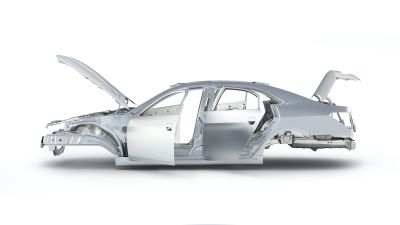
Nissan to switch to low-CO₂ emission aluminum by 2030
London, 17 May 2024, (Oilandgaspress) –Nissan Motor Co., Ltd. announced today that it will use low CO2 emission aluminum parts1 made from green or recycled aluminum in new and current models from fiscal year2 2024 onward and aims to complete the full transition to such parts by 2030.
Aluminum accounts for approximately 10% of vehicle weight. By using low CO2 emission aluminum, Nissan aims to take a significant step towards achieving carbon neutrality.
Nissan aims to achieve carbon neutrality in the entire lifecycle*3 of its vehicles by 2050.
Green aluminum is produced using non-fossil fuel-derived electricity and can reduce CO2 emissions during production by approximately 50%4. Additionally, recycled aluminum can reduce CO2 emissions by approximately 95%4. Nissan has been purchasing low CO2 emission aluminum sheets for vehicle panels produced in Japan from Kobe Steel, Ltd. and UACJ Corporation. Going forward, Nissan will use low CO2 emission aluminum for all aluminum parts, including processed components, globally, to further reduce CO2 emissions.
For all new models produced from fiscal year 2027, low CO2 emission aluminum will be used. For current models, from this fiscal year Nissan aims to start purchasing wheels, chassis parts, axle parts and harness wires made from green aluminum in Japan, the United States, and Europe. As a result, by the end of fiscal year 2024 approximately 20% of the newly mined aluminum Nissan uses for car parts procured in those markets is expected to be replaced with green or recycled aluminum.
Nissan’s places sustainability at the core of its business, aiming for a cleaner, safer, and more inclusive world. Nissan will continue to accelerate its efforts towards realizing a sustainable society.
Information Source: Read full article
Oil and gas press covers, Energy Monitor, Climate, Renewable, Wind, Biomass, Sustainability, Oil Price, LPG, Solar, Marine, Aviation, Fuel, Hydrogen, Electric ,EV, Gas,

